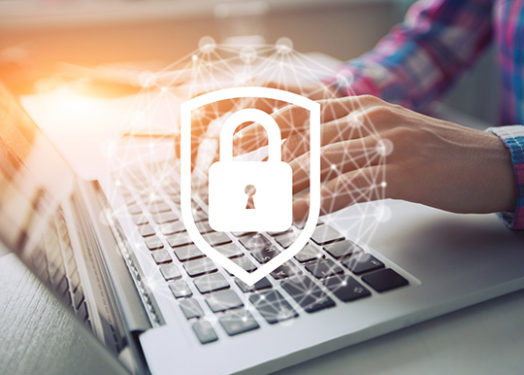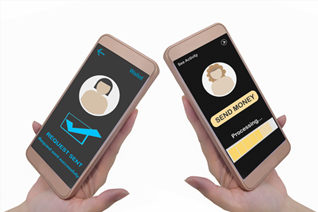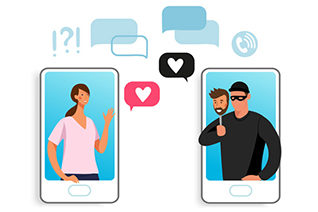
Take action if you suspect your identity/account is compromised
If you notice suspicious activity on any Unitus account, credit card or debit card, we are here to help. Contact us immediately using a method below:
- Visit our Virtual Branch to live chat or video chat instantly.
- Call us at 503-227-5571 or 1-800-452-0900 to get help from a Member Service Specialist.
- To report lost or stolen debit or credit card after business hours, call 503-423-8315 or 1-800-422-3132 (option 2).
We also encourage you to file a complaint with the Federal Trade Commission (FTC), the U.S. government agency tasked with investigating deceptive or unfair business practices. This will help protect other innocent people from fraud.
Account security is a team effort
Whether you’re shopping, opening an account, transferring money or just checking your balance, you want to be sure your banking transactions are secure. Being proactive and following the latest industry guidance, you can help protect your accounts from fraudsters.
-
Security
-
Fraud Prevention Tips
-
Protection


Fraud Prevention Tips
Learn about common scams, the warning signs, and how you can protect yourself. Search ‘Fraud Prevention Tips’ in our blog to read more.
-

Peer-To-Peer (P2P) Scams
With Peer-to-Peer payments, it’s never been easier to send money, but these apps do come with risks. Learn how to protect yourself and stay safe.
-

Learn How to Protect Yourself from Identity Theft in a Few Easy Steps
Don’t fall victim to identity theft! Take action right now to better protect yourself. Get started with these simple to follow steps.
-

Romance Scams: What They Are and How to Beat Them
Scammers love to take advantage of lonely hearts as these people are typically vulnerable and willing to make new love connections online.
More Ways to Protect Yourself
-
Here are some ways you can keep your credit and debit cards secure.
- Download the Unitus Card Guard app. (iOS/Android).
- Sign up for Unitus fraud text alerts.
- Sign your new credit or debit card immediately after receiving it.
- Never carry your PIN and card together. If you can memorize your PIN, shred any documents containing the number. If you prefer to have a reference copy, store it in a different place from your card.
- Shred or cut up your old cards as soon as they expire or are no longer active.
- Shred any receipts of purchases made using your card.
- If you suspect your card is lost or stolen, report it to Unitus immediately.
-
For fraudsters, your computer can be a gateway to personal information. Stay secure with these steps.
- Install anti-virus and anti-spyware on your computer. There are many products available to deter criminals from accessing your personal information through your computer.
- Add a firewall to your computer to prevent unauthorized users from accessing your system.
- Install all software fixes (also called “service packs”) available for your computer programs as soon as possible. These often fix newly discovered security weaknesses.
- Use a current web browser. The newer the version, the more likely it is to keep you safe online.
- Activate a pop-up blocking tool. Pop-ups are still a favorite of fraudsters, hiding malicious software behind enticing offers like promises of cash or other prizes.
-
Minimize your mobile risk with these steps:
- Keep your device software up to date for the latest security protection.
- Use a PIN or password to unlock your device. Make it different from your other passwords.
- Use a biometric login if your device has a fingerprint sensor.
- Only download apps from reputable sources such as the Apple App Store or Google Play Store.
- Be suspicious of email and social media requests from strangers. Social media sites are a favorite target for fraudsters.
- Always look for “https” in the URL when browsing or shopping online. This indicates an added level of security for that site.
- Don’t open text messages if you’re uncertain of the source. The message may contain malicious software that could compromise your device. When in doubt, delete the text.
-
- Keep personal or account information tucked away in a single place where only you and trusted individuals know where to find it.
- Provide information only to trusted sources. Never give information to individuals with whom you did not initiate the contact, or have not confirmed their business or identity.
- Reduce the amount of mail sent to you. Envelopes can be stolen from your mailbox or trash. Choose electronic statement options (Unitus offers this service through Digital Banking or over the phone at our contact center).
- Opt-out of pre-approved credit offers by calling 1-888-567-8688 or visiting optoutprescreen.com.
- Frequently monitor your account statements and history online for unauthorized transactions.
- Check your credit report for discrepancies on a regular basis. You can obtain a free credit report from each reporting agency once a year by visiting AnnualCreditReport.com.